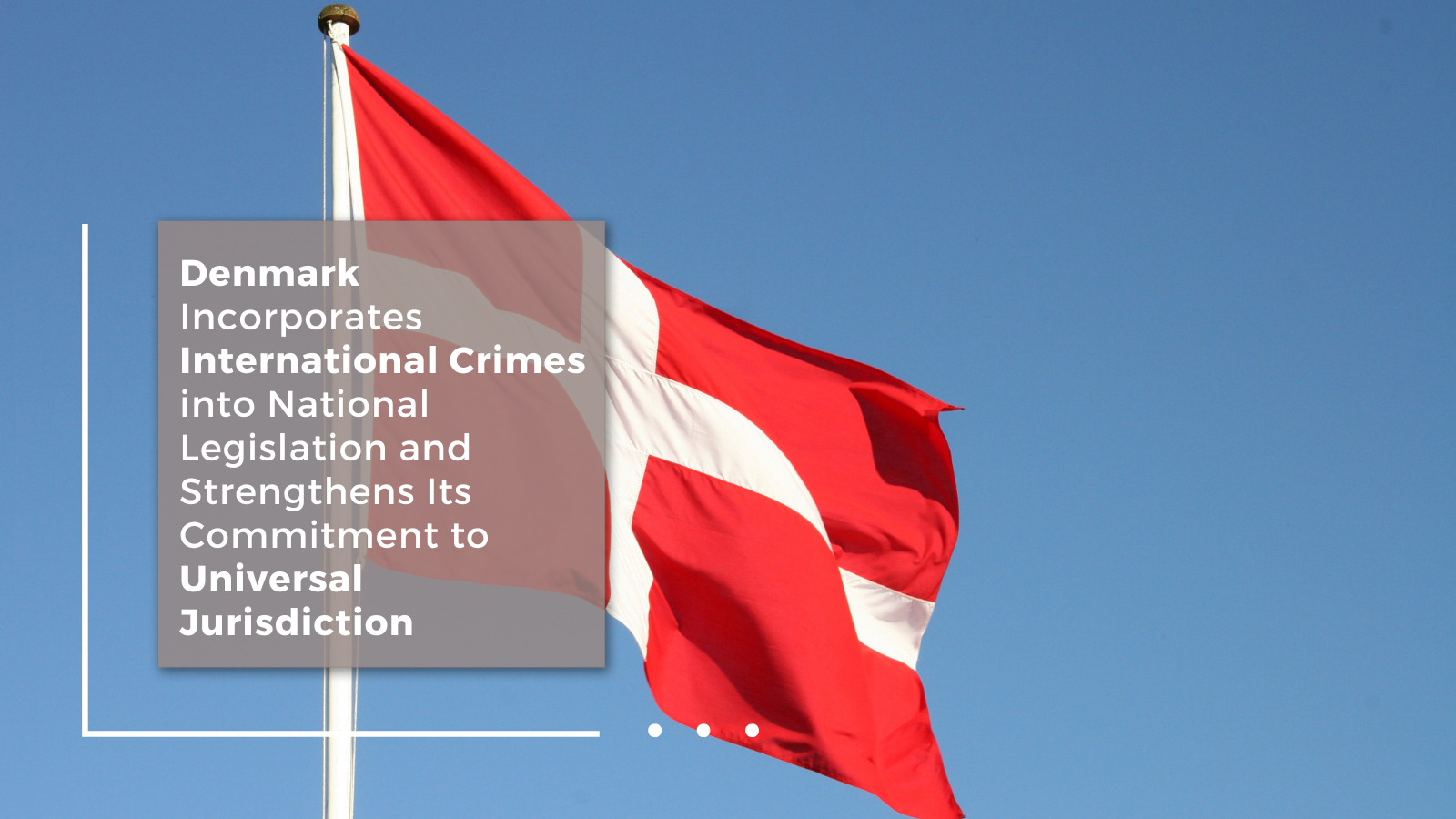
Denmark Incorporates International Crimes into National Legislation and Strengthens Its Commitment to Universal Jurisdiction
The Danish Parliament approved a legislative reform on December 17, 2024; this historic action introduced a new chapter on international crimes into the country’s Penal Code. This amendment, which came into effect on January 1, 2025, explicitly criminalizes war crimes, torture, and crimes against humanity, consolidating Denmark’s commitment to the principle of universal jurisdiction.
The reform allows these crimes to be prosecuted within Danish territory, provided that the suspected individual is present in the country. While jurisdiction is not unlimited, this condition reflects the traditional approach of many European legal systems and establishes a solid foundation for Denmark to contribute more actively to international accountability efforts for serious crimes.
According to Trial International’s Universal Jurisdiction 2025 report, this legislative measure places Denmark among a growing group of states that have strengthened their legal capacity to investigate and prosecute serious violations of international law, even when these crimes have not occurred on their national territory.
Furthermore, the new legislation positions Denmark as a more effective partner in judicial cooperation with international bodies, such as the International Criminal Court (ICC). This legal reform enables a more agile response to international requests for cooperation, the sharing of evidence, and participation in joint investigations.
With this initiative, Denmark not only strengthens its domestic legal framework but also sends a clear signal to the international community about its willingness to actively contribute to the fight against impunity. The codification of these fundamental crimes in its Penal Code represents a crucial step toward ensuring that perpetrators of atrocities cannot find legal refuge, and that victims, regardless of their origin, have a path to justice.
Until this reform, Denmark relied on international conventions, such as the Geneva Conventions or the Convention against Torture, to prosecute these offenses, which often posed legal challenges in their direct application at the national level. By directly incorporating international crimes into its Penal Code, the country aligns its legal framework with international criminal law standards and reduces legal gaps that previously hindered the prosecution of these crimes.
David Cañón Galán, Contributor to FIBGAR



